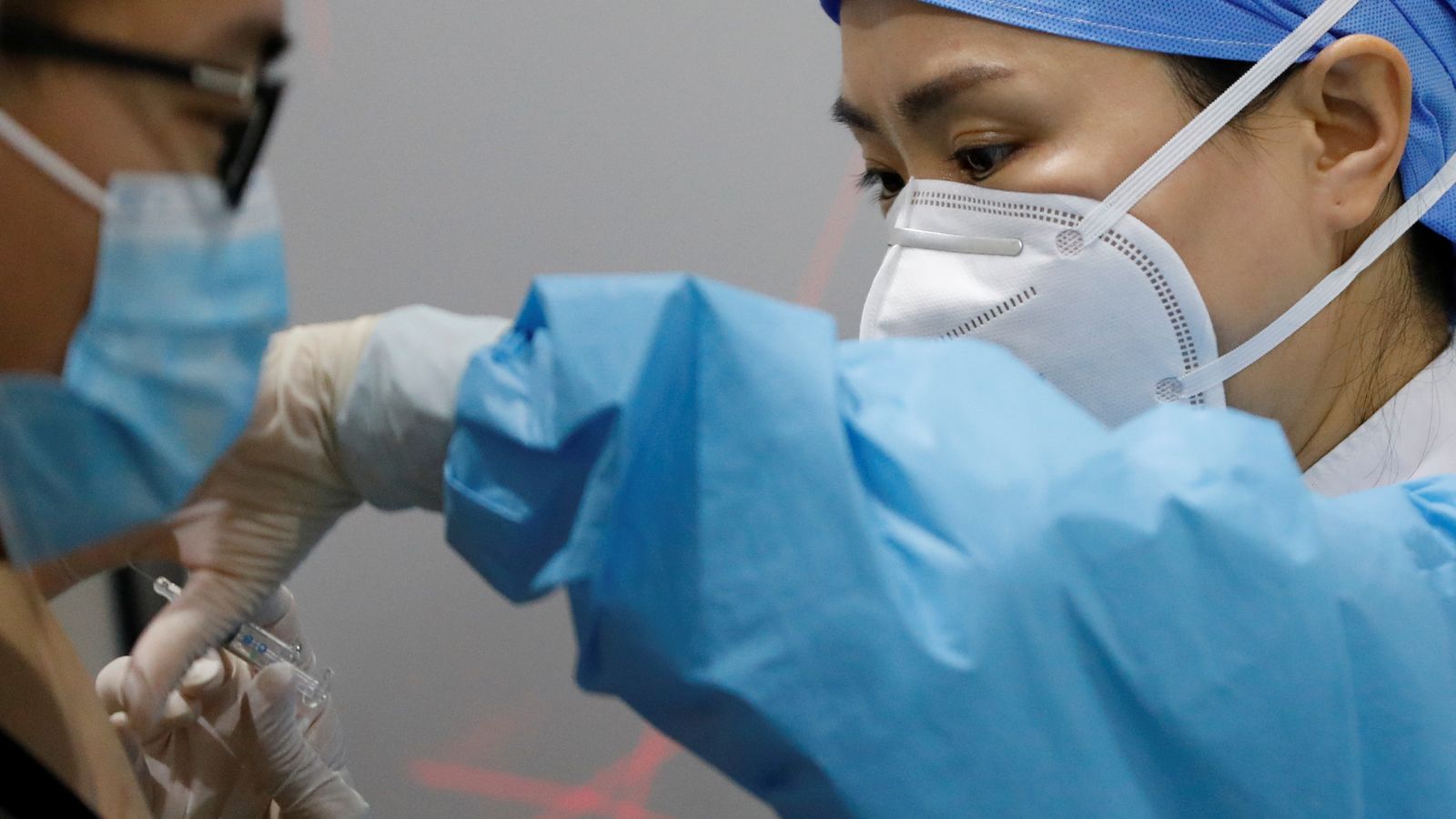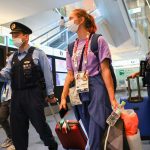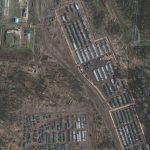China’s top disease control official has admitted that the efficacy of the country’s coronavirus vaccines is low – and mixing them is among the strategies being considered to boost their effectiveness.
Gao Fu, the director of the Chinese Center for Disease Control and Prevention, said efficacy rates needed improving, in the rare admission.
Giving people doses of different vaccines is one way to improve vaccines that “don’t have very high rates of protection”, he said.
Live COVID updates from across the UK and around the world
“Inoculation using vaccines of different technical lines is being considered,” he added, during a conference in the Chinese city of Chengdu.
China has been at the forefront of COVID-19 vaccine development.
It started vaccinating some citizens as far back as last summer under emergency use approval.
Five vaccines have been developed in China, four of which require two shots and a fifth which is only a single dose.
It includes one from privately owned company Sinovac, two from the state-owned Sinopharm, one developed as a partnership between Mr Gao’s team and Anhui Zhifei Longcom, and a single shot vaccine from a company called CanSino.
The effectiveness of the vaccines range from as low as around 50% to 79%, based on what the companies have said.
Mr Gao later released a statement through the state-owned Global Times saying that he had been misunderstood and had in fact been talking about global vaccines in general.
No externally developed vaccines are authorised for use in the country.
A study released on Sunday on the Sinovac vaccine, when given shorter than three weeks apart, showed that the jab had a 49.1% efficacy in Phase III trials in Brazil, below the World Health Organisation’s threshold.
However, increasing the gap between jabs over three weeks boosted the efficacy to 62.3%.
A real-world study at the University of Chile suggested last week the vaccine was 54% effective in reducing infection.
Chile has used the Chinese vaccine on a large scale, vaccinating millions of people, although it is still in the grip of a spike of cases – seeing as many as 8,000 daily diagnoses in recent weeks.
The Chinese developers – including Sinopharm – have not published any peer reviewed data for Phase III medical trials.
The jab developed by Mr Gao’s team was given emergency approval a month ago, despite data about its efficacy not being publicly disclosed.
Pfizer, AstraZeneca and Moderna have all reported they are around 90% effective in late stage trials.
Both of the coronavirus vaccines developed by Pfizer and Moderna use mRNA to send genetic instructions to the body’s cells that result in them producing antibodies for the coronavirus without the virus actually being introduced to their body.
Earlier in the pandemic, Mr Gao had questioned the safety of mRNA jabs, but at the weekend he said: “Everyone should consider the benefits mRNA vaccines can bring for humanity.”
China has exported a large number of vaccines around the world, including to Europe, South America and Africa.
According to Mr Gao, as of 2 April, 34 million people in China had received two doses of a Chinese vaccine, and 65 million had received one.






















